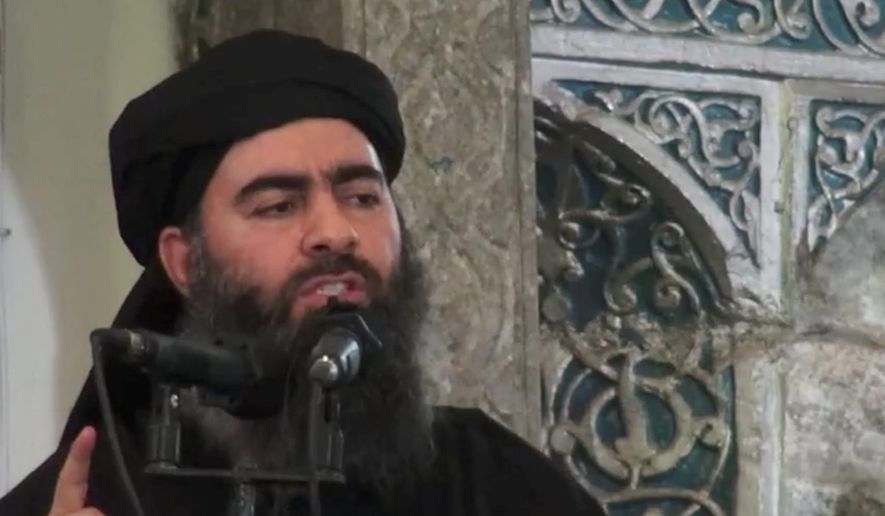The Islamic State movement’s “meteoric rise” in global popularity presents a direct challenge to what intelligence officials describe as the al Qaeda movement’s “original core” in the Pakistan-Afghanistan border region, according to a new report citing an “exceptional level of flux” recently among Pakistani militant groups.
American intelligence officials have noted discord since last year between Abu Bakr al-Baghdadi, the Islamic State’s leader in Syria and Iraq, and Ayman al-Zawahiri, the purported head of al Qaeda’s original global terrorist network.
Now, a report produced by the “Critical Threats” program at the American Enterprise Institute, maintains that al-Zawahiri’s frustration with al-Baghdadi’s reach became so intense in September that al-Zawahiri announced the formation of a new al Qaeda affiliate in South Asia.
“Al Qaeda has tried to stymie some of IS’s appeal by establishing a new regional branch, al Qaeda in the Indian Subcontinent Subcontinent (AQIS),” states the report.
The document also emphasizes how other previously al Qaeda-aligned groups in the region appear to be jumping ship and devoting themselves to al Baghdadi’s Islamic State movement in the Middle East. Most importantly, the report states, several senior leaders from the main Pakistani Taliban umbrella group known as Tehrik-e-Taliban Pakistan (TPP) have defected and pledged bayat, or allegiance, to the Islamic State leader.
“The defection is remarkable because, in pledging allegiance to Baghdadi, the defectors took the unprecedented step of withdrawing their allegiance to Afghan Taliban leader Mullah Omar,” the report states, adding that “militant groups in Pakistan are experiencing an exceptional level of flux in their leadership, structure, and allegiances.”
SEE ALSO: Abu Bakr al-Baghdadi, Islamic State leader, wounded in airstrike, reports say
“How the dust settles will provide insight into the changed nature of the enemy in the region,” the document states.
Separately, there was more uncertainty Wednesday over the fate of al-Baghdadi. Questions have swirled since the weekend over whether a U.S. air strike hit the terrorist leader in Iraq. U.S. officials have declined to confirm or deny reports during recent days he was critically injured or killed.
• Guy Taylor can be reached at gtaylor@washingtontimes.com.




Please read our comment policy before commenting.